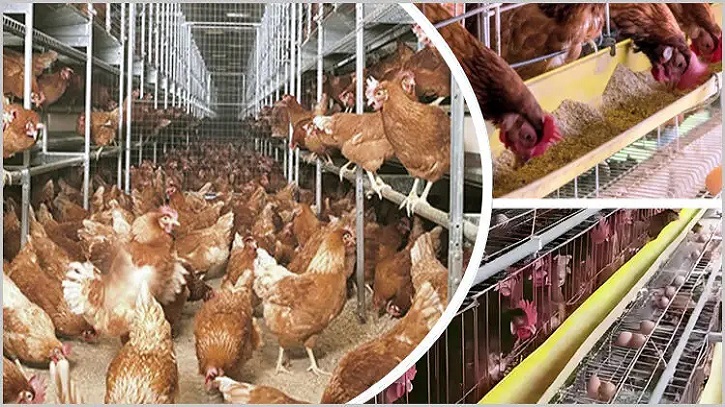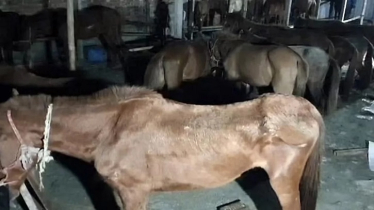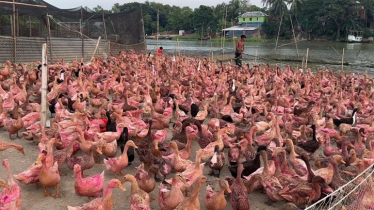
Bangladesh’s poultry industry has opened a new chapter of growth, driven largely by young entrepreneurs who are turning to poultry farming as a path toward financial independence. Offering quick returns and requiring relatively low investment, poultry farming is rapidly gaining popularity across the country. Among the key contributors to this boom is the Hy-Line Brown breed of chicken, now widely recognized as the most efficient and profitable layer bird in Bangladesh.
The Hy-Line Brown, a hybrid layer breed developed specifically for high egg production, has proven to be a game-changer for Bangladesh’s poultry sector. Its adaptability to the country’s warm, humid climate and exceptional productivity have made it the top choice among farmers, especially the younger generation seeking sustainable livelihoods.
According to Sakib Iftekhar Islam, a final-year student at the Faculty of Animal Husbandry at Bangladesh Agricultural University, the Hy-Line Brown breed’s productivity far surpasses that of traditional varieties. Over a 100-week production cycle, each bird can lay between 468 and 473 eggs, averaging more than five eggs per week, with a peak laying efficiency reaching up to 96 percent—making it highly profitable for commercial farming.
The breed’s feed conversion ratio ranges from 1.9 to 2.1, meaning the chickens gain one kilogram of weight from about two kilograms of feed—an efficiency level that helps reduce costs while maximizing profits.
Hy-Line Browns also adapt well to Bangladesh’s climate, tolerating heat and humidity better than many imported breeds. Their brown-shelled eggs are preferred in local markets, fetching higher prices than white eggs. The eggs have strong, durable shells that minimize transport losses, and their internal quality scores above 90 on the Haugh Unit scale by 38 weeks of age, indicating premium quality.
One-day-old Hy-Line Brown chicks are readily available across Bangladesh, typically priced between Tk 60 and Tk 80 each. They can be sourced from district or upazila livestock offices or from reputable private companies such as Kazi Farms, Paragon, and Nourish. These companies also offer training and advisory services to support new entrepreneurs entering the sector.
For successful Hy-Line Brown farming, experts recommend establishing farms in well-ventilated, sunlit locations with clean and disinfected housing. Providing balanced feed rich in protein, vitamins, and minerals is essential. Regular vaccination and veterinary guidance are also key to preventing disease outbreaks and maintaining flock health.
Poultry farming with Hy-Line Brown chickens offers tremendous potential for young entrepreneurs, ensuring steady income and employment opportunities. Beyond the domestic market, the growing demand for eggs and poultry products also presents export potential. Additionally, government incentives, including low-interest loans, training programs, and technical support, are helping newcomers establish themselves in the industry.
However, challenges remain. Rising feed prices, disease outbreaks, and fluctuating market rates continue to affect farmers’ profitability. Experts advise that overcoming these challenges will require proper training, use of modern technologies, and market-based planning. Engaging with local poultry associations can also help farmers stay informed and resilient.
Ultimately, the poultry industry not only empowers individuals economically but also plays a vital role in ensuring Bangladesh’s food security and strengthening the national economy. For aspiring young entrepreneurs, Hy-Line Brown layer farming stands out as a promising and rewarding avenue toward financial stability and self-reliance.





